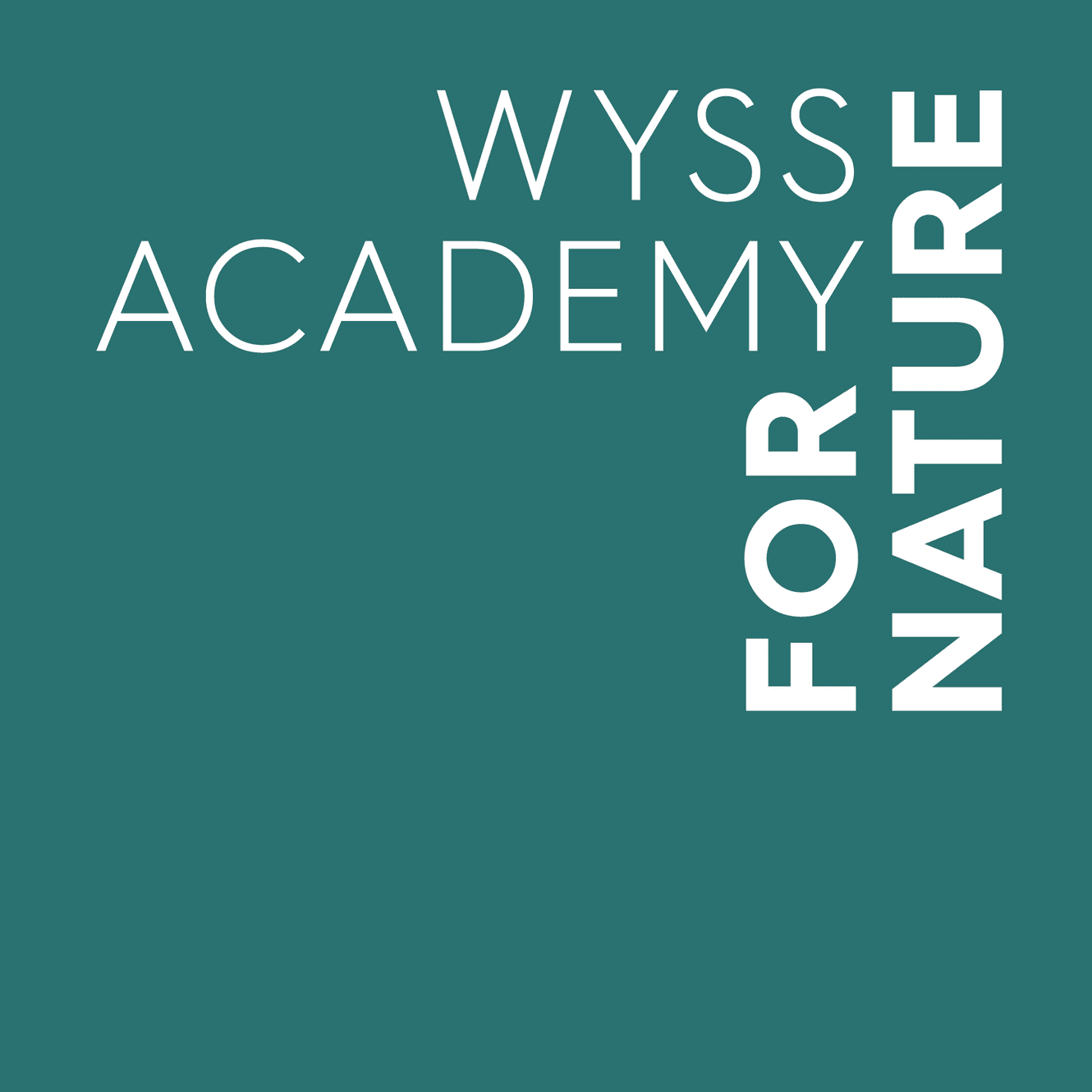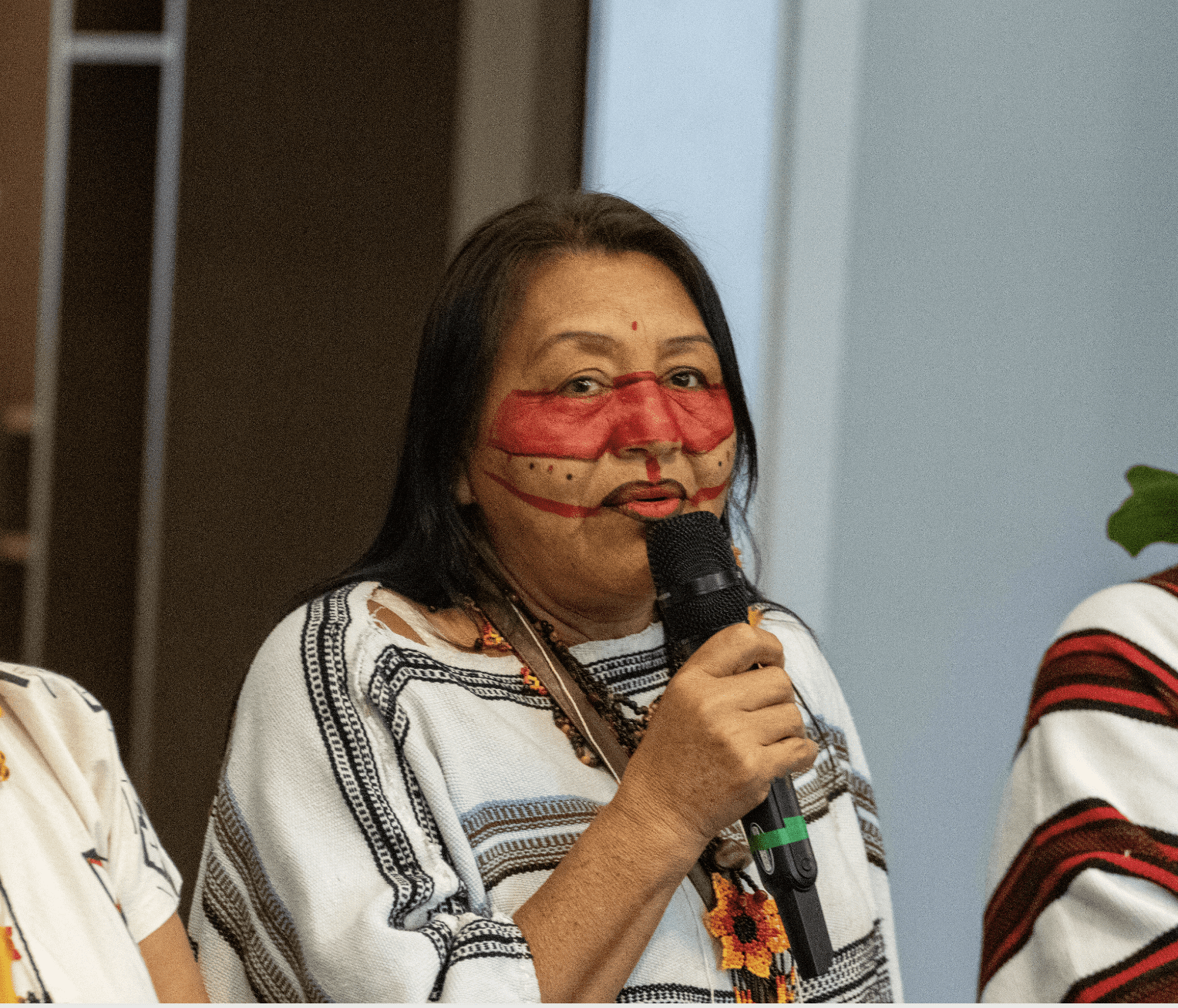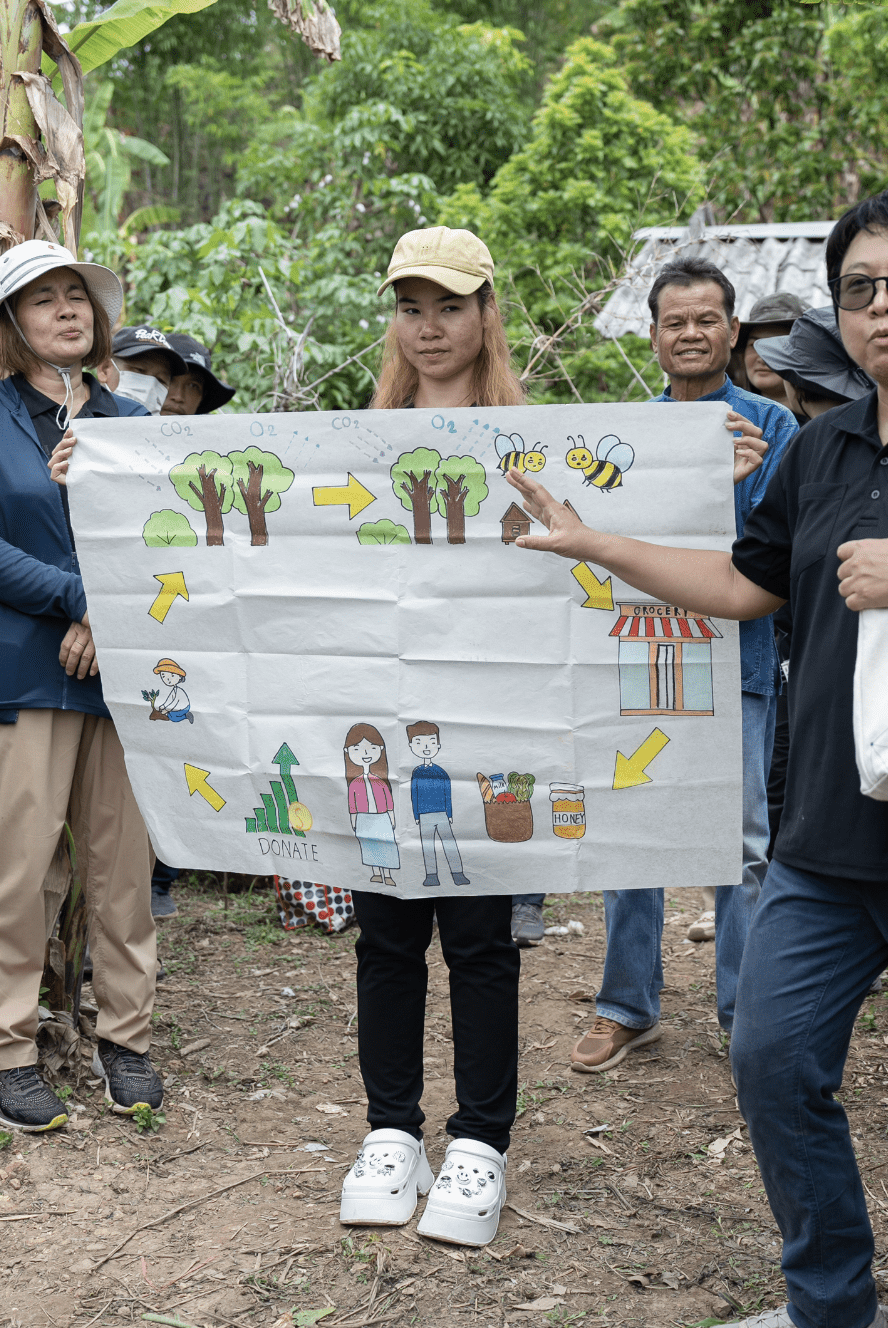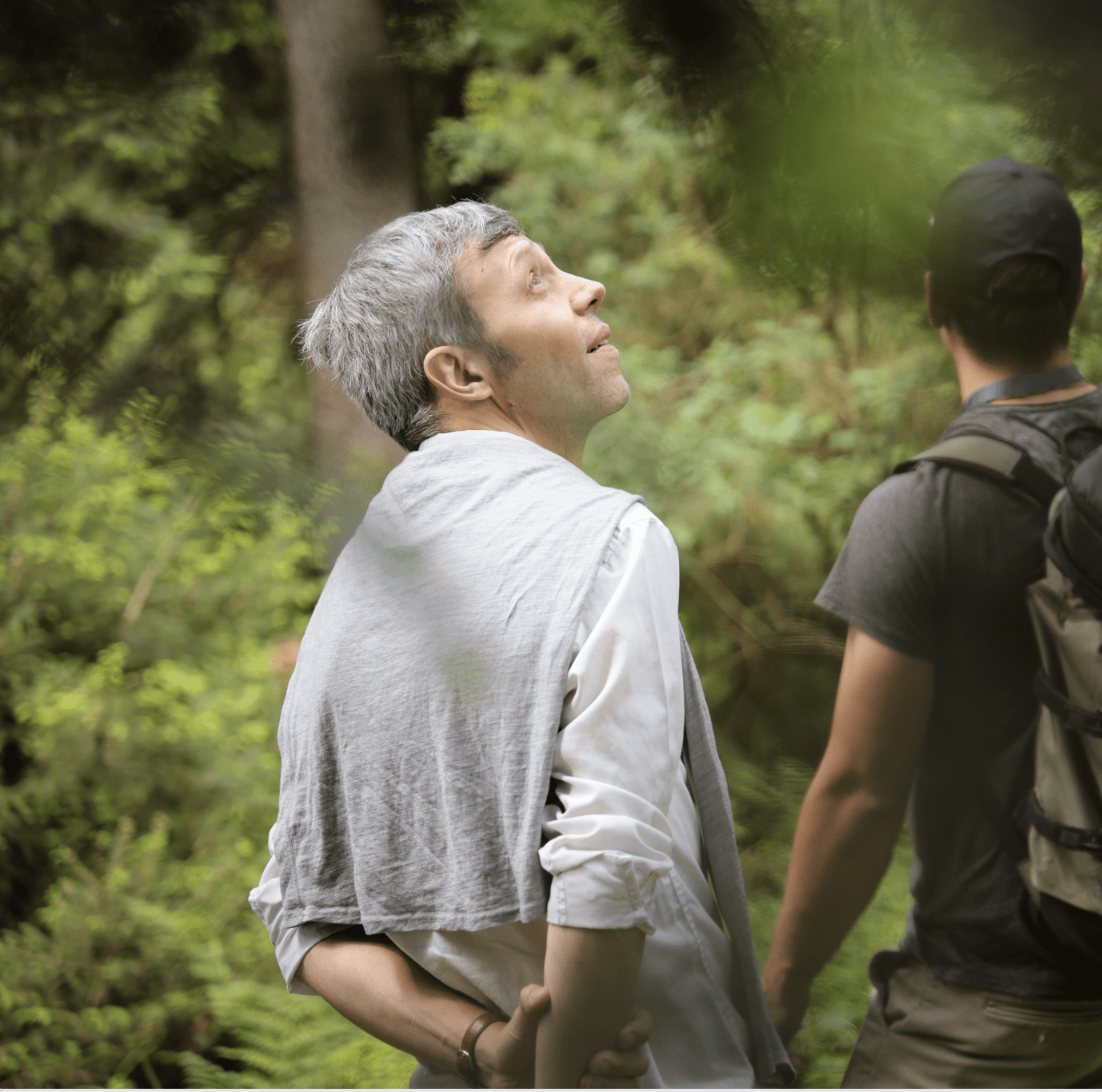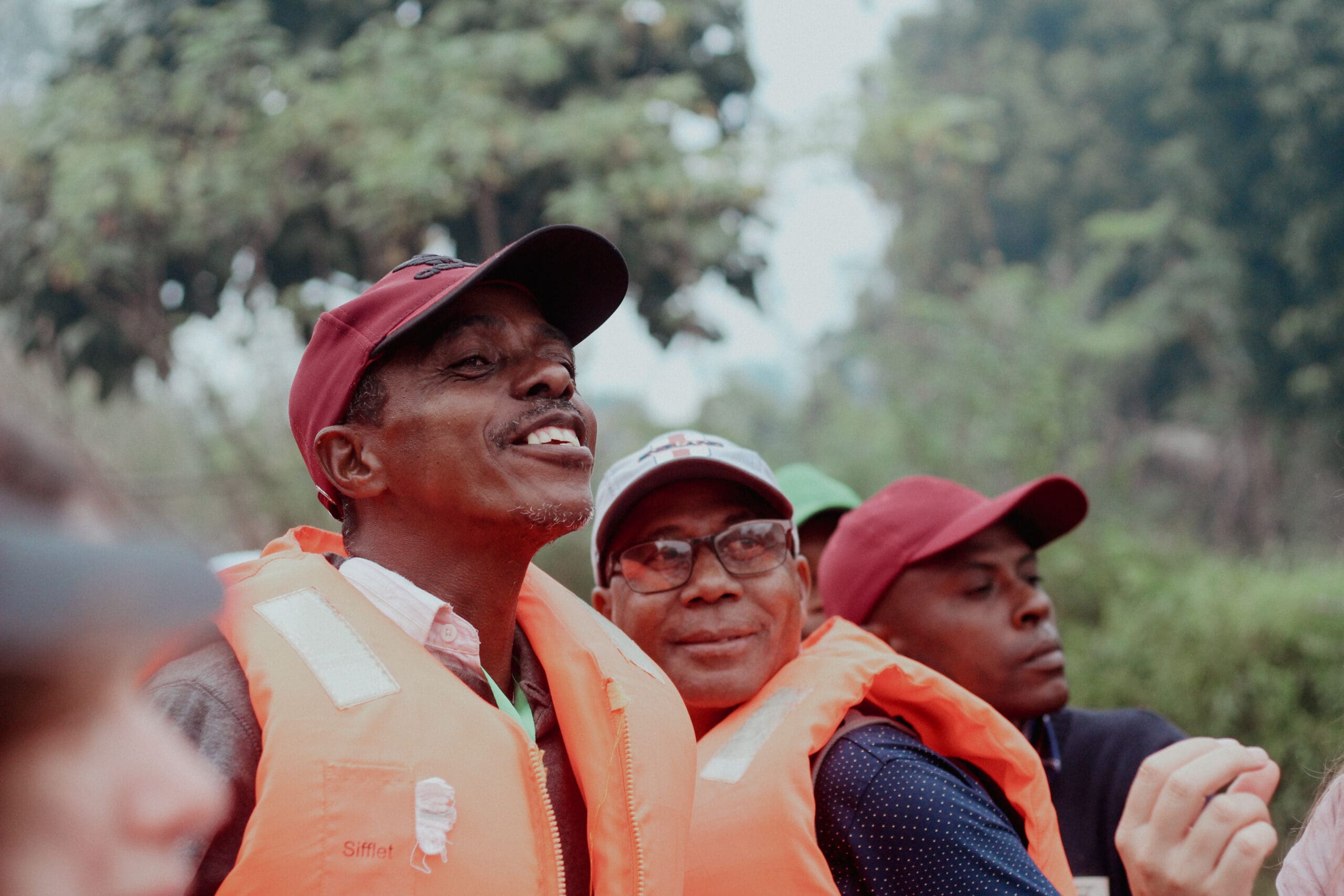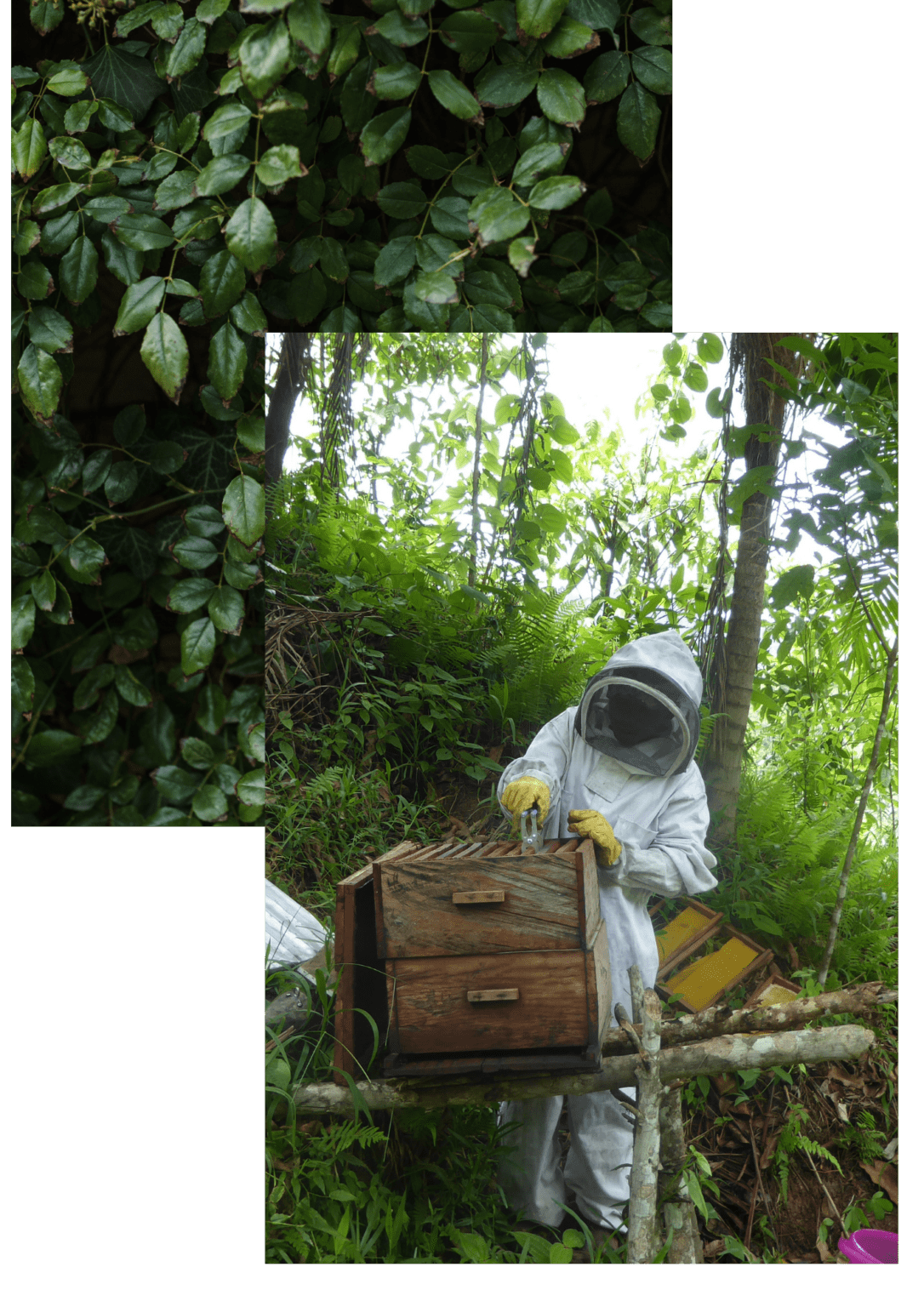True Value of Forests
A series of intentional, evidence-based events where collective wisdom transforms into impactful action.
Part of the Wyss Academy Dialogues.
Click for sounds of the forest
We unite diverse voices to build tangible solutions at the intersection of biodiversity, climate change, and land use. Together, we cultivate regenerative ecosystems for a sustainable tomorrow.
We are the Wyss Academy for Nature.
Global dialogues for change
Imagine a gathering of scientists, indigenous leaders, policymakers, entrepreneurs, and passionate individuals—each bringing their unique perspectives and expertise to explore The True Value of Forests.
Through four regional Wyss Academy Dialogues in East Africa, South America, Southeast Asia, and Europe these diverse voices have engaged in deep discussions, utilising design thinking and Art of Hosting methodologies. With up to 50 participants in each dialogue, this collective wisdom has been transformed into actionable strategies, cultivating regenerative ecosystems and driving sustainable change for our planet’s future.
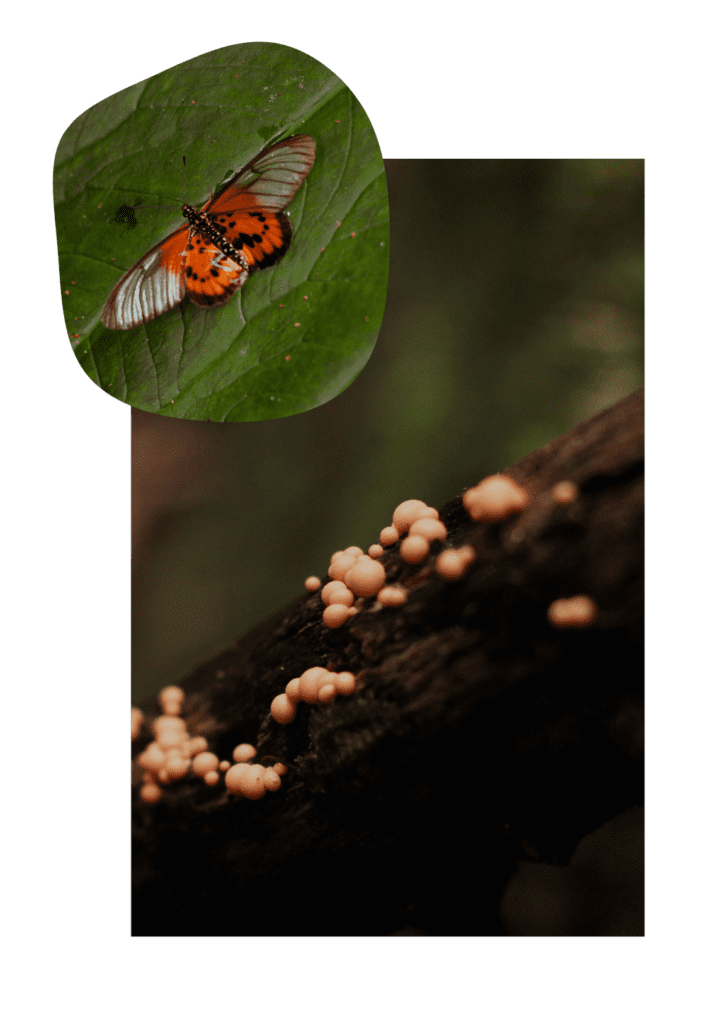
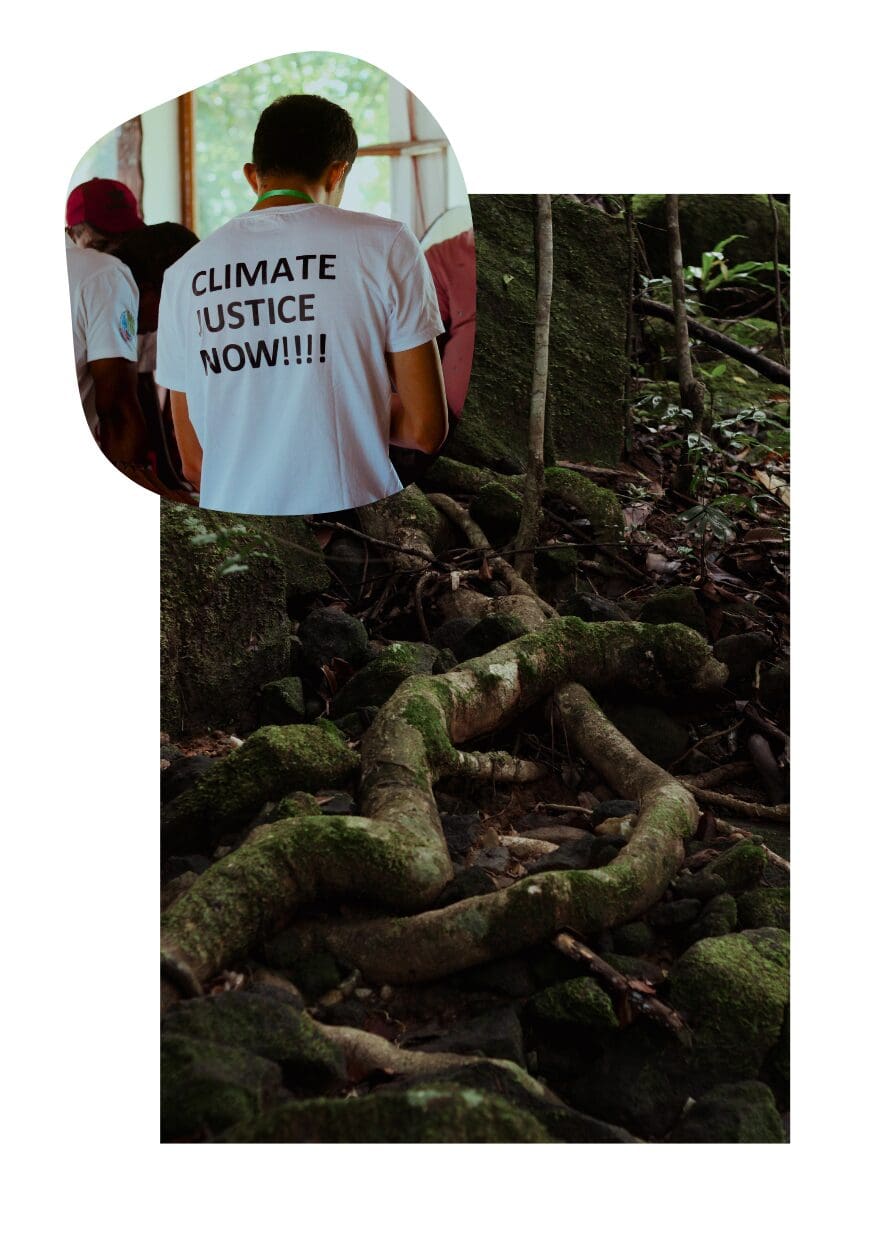
Dialogues Around the World
Our dialogues shape local and global agendas through transformative cross-regional gatherings.
Each of the four dialogues focused on a specific Challenge Statement, guiding knowledge-sharers in developing innovative solutions.
These events were more than discussions—they were action-driven workshops where ideas turned into tangible outcomes.
Explore the articles below to uncover key takeaways, collective visions, and insights from the contributors, and witness how these dialogues are impacting the future of our forests.
Outcomes
Valuing Non-material Contributions.
The Amazon rainforests provide non-material contributions to people’s well-being, particularly for indigenous communities’ identity, spirituality, and culture. Expressing these contributions in economic terms poses inherent challenges, yet recognizing and integrating these non-material values into decision-making processes is vital for holistic conservation efforts.
How might we incorporate other value systems in our relationship in and with the Amazon?
Unsustainable Economic Practices and Conflicting Values.
Historically, the economic narrative surrounding the Amazon has prioritized resource exploitation, presenting a challenge in shifting towards sustainable economic alternatives. Reshaping this narrative to foster practices that preserve the forest’s inherent value is essential for long-term sustainability.
How might we change the current narrative around the values of the Amazon? What do we need to communicate?
Ineffective Land-Use Policies and Stakeholder Disagreement
Ineffective land-use policies coupled with a diverse array of stakeholders with distinct interests in forest management complicates genuine collaboration necessary for inclusive valuation of the forest. Overcoming these challenges is crucial for implementing effective conservation strategies while balancing economic growth.
How might we achieve effective collaboration to change the narrative for the Amazon?
Stakeholder Collaboration
Collaboration among diverse stakeholders is crucial for effective forest management. Empowering stakeholders through mechanisms, such as Free, Prior and Informed Consent can improve participation and feedback mechanisms from local to central levels.
How might we enhance existing mechanisms for stakeholder collaboration to ensure inclusivity and cooperation?
Forest governance
Strong forest governance, including robust legal frameworks, institutions, and law enforcement, is vital to sustainable management of forests. Weak governance often results in conflicts over land and forest resources, particularly affecting Indigenous Peoples and Local Communities.
How might we ensure equitable benefit-sharing in forest/land tenure and responsible investment practices towards sustainable forest management?
Resource Constraints
Addressing resource constraints requires a multifaceted approach and securing additional funding for sustainable forest management, potentially through government budgets, international aid, or public-private partnerships. Capacity-building programs and innovative technologies can enhance skills and knowledge in the sector.
How might we improve resource utilisation efficiency towards sustainable forest management?
Integrated Land Use Systems for Sustainable Energy Projects in Forest Environments
The increasing utilization of forest areas for renewable energy sources, such as wind turbines, photovoltaic installations, and pumped storage, presents a challenge. The escalating land use conflicts in Switzerland require innovative approaches to strike a balanced harmony between the 2050 energy policy, the expansion of renewable energies, and the protection of forests. The challenge aims to promote sustainable and integrated land use systems to overcome current dilemmas and foster a dialogue between energy projects and conservation interests.
How might we develop solutions that facilitate the seamless integration of energy facilities, access roads, and high-voltage lines in forested areas, taking into account stringent environmental regulations and forest laws?
Sustainable Wood Utilization in Switzerland for a Balanced Timber Balance
Given current reliance of Switzerland on wood imports from abroad, domestica production is sought to meet domestic consumption. Possible obstacles such as trading CO2 certificates, deficit wood production, local opposition to wood utilization, and the existence of forest reserves should be taken into account.
How might we develop solutions (technologies, policy measures, social innovations) to achieve a sustainable and balanced timber balance while considering ecological, social, and economic concerns?
Managing sustainable utilization conflicts in public forest management
In addition to timber supply, there are increasingly other societal demands placed on public forests, such as their role as recreational spaces Innovative solutions need to be developed for leisure activities, as well as for the preservation and enhancement of biodiversity, allowing for integrated and sustainable utilization while ensuring a balanced consideration of various interests. Solutions should reflect the new societal pluralism of values and produce viable approaches to ensure that the value of public forests in their diversity is preserved.
How might we protect public forests from being overrun by special interests and ensure sustainable management?
Integrated Forest Management and Conservation
Effective forest management in Madagascar requires a balanced approach that integrates the rights and well-being of local communities with conservation efforts. This involves enhancing the involvement of the Malagasy government by increasing the budget for conservation, improving human and material resources, and fostering collaboration among researchers, local communities, organizations, and civil society in decision-making processes. Updated laws and regulations should reflect current local and global realities, be based on scientific research, and align with international conventions to gain widespread acceptance and ensure more effective governance and respect for forests.
How might we mobilize governmental and non-governmental stakeholders to explore existing guidelines and how their effective implementation and enforcement can be ensured?
National Education and Public Engagement
Strengthening the educational system to include the importance of forest conservation can build a foundation of knowledge and foster a commitment among all Malagasy citizens. This approach should extend beyond traditional learning to involve community-wide engagement and awareness initiatives that emphasize the economic, ecological, and social significance of forests, thereby preventing their extinction and promoting sustainable use.
How might we create educational campaigns and participatory conservation projects that actively involve all sectors of society?
Combined Knowledge for Sustainable Practices
To achieve sustainable forest management, it is crucial to merge scientific research with traditional knowledge. This can be facilitated through the creation of platforms for the exchange of ideas and approaches, such as integrating environmental considerations into development strategies and using both physical and digital media to make information more accessible and relatable. Collaborative efforts between local communities and scientists will help develop methods that respect and incorporate the ecological, economic, and cultural dimensions of forest conservation.
How might we foster meaningful collaboration, exchanges and practical applications that enhance forest management and conservation efforts?
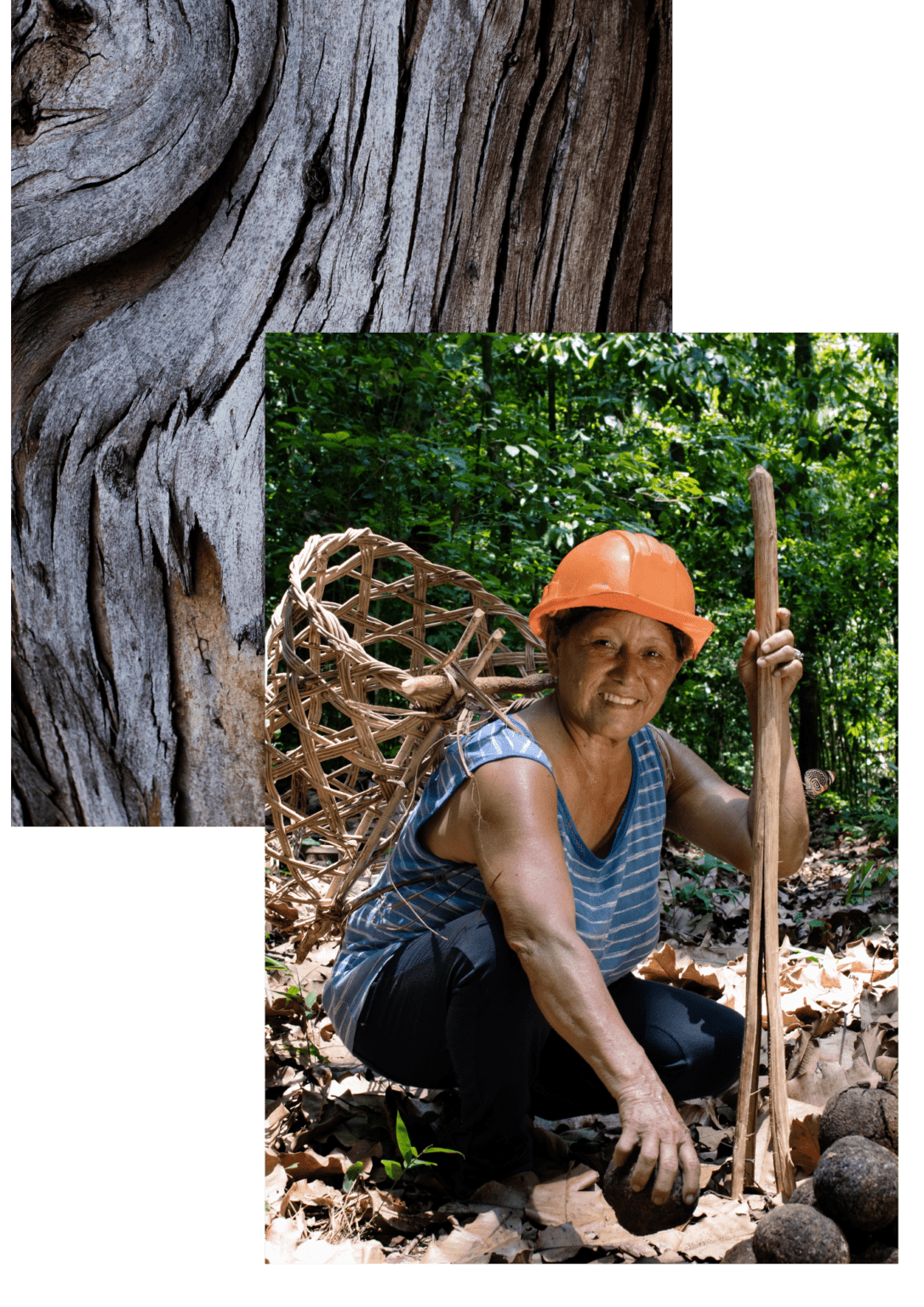
Elina Yumbato collecting Amazon nuts in the Tambopata National Reserve, Madre de Dios, Peru. Photographer: Natalia Peralta
Invest in Forest Innovation: Partner with us in Shaping the Future of Forests!
We’re looking for forward-thinking private and public sector partners to collaborate with to turn new concepts from the dialogues into reality. Get in touch to support pioneering solutions to make a lasting impact.
About the Wyss Academy for Nature
The Wyss Academy for Nature is driven by the goal of bridging the gap between knowledge and action in addressing pressing global challenges like climate change, biodiversity loss, and unjust land use. In 2022, this dynamic organisation achieved full operational status, now uniting more than 90 dedicated professionals across Switzerland, Kenya, Madagascar, Peru, and Laos. Their collaborative efforts are focused on actively seeking and testing innovative solutions to the complex, interlinked issues surrounding these critical environmental concerns. The Wyss Academy for Nature embodies a commitment to turning knowledge into meaningful, tangible actions for a more sustainable and equitable future.
Our partners in change






